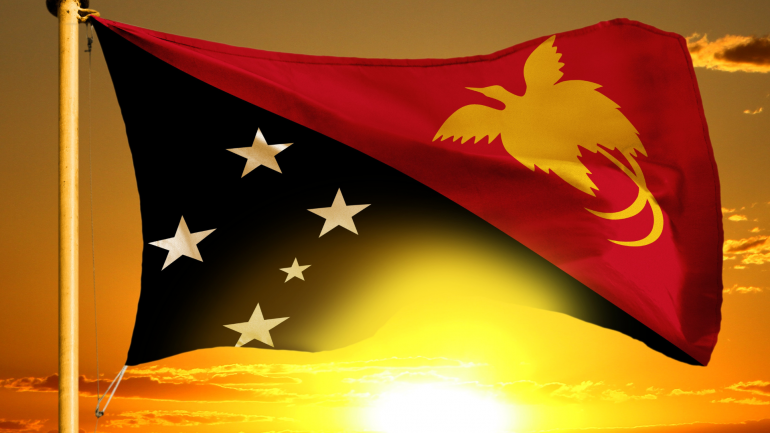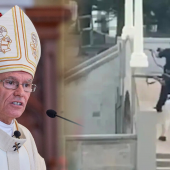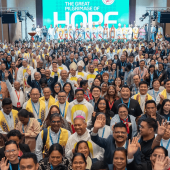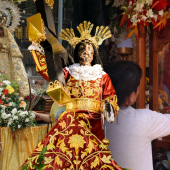Independence or Illegality? The Unsettled Case of PNG

As Papua New Guinea (PNG) marks 50 years of independence, a growing body of legal and cultural voices is questioning the legitimacy of its 1975 separation from Australia.
While widely celebrated as a model of peaceful decolonization, critics argue that PNG’s independence may have breached the Australian Constitution. Central to this claim is Section 128, which requires a national referendum for constitutional changes, including the removal of a territory from the Commonwealth.
Recent arguments also point to the deep ancestral ties between Papua New Guineans and Aboriginal Australians. With over 75,000 years of shared cultural heritage, some say PNG was not just a colony but an extension of Aboriginal Australia and that its detachment without consent erased Indigenous sovereignty.
The debate is sparking calls for legal review, recognition of ancestral links, and reconciliation, as voices from both sides of the Torres Strait push for historical accountability and justice.
Ancestral Unity: Papua New Guineans and Australian Aboriginals
Long before colonial borders, Papua New Guineans and Aboriginal Australians shared deep ancestral, cultural, and spiritual connections. Connected by the ancient supercontinent Sahul, they moved freely across what is now the Torres Strait. Archaeological and genetic evidence confirms continuous cultural presence in the region for over 75,000 years.
Tribes like the Enga of PNG’s Highlands share oral traditions and cosmologies akin to Aboriginal Dreamtime narratives. In the Torres Strait, shared languages, rituals, and family ties between northern Australian and PNG communities endure.
These connections reinforce the view that PNG was not just a foreign colony but an integral part of the Aboriginal cultural world. Critics argue that its removal from the Commonwealth of Australia—without Indigenous consultation or national consent—represents a historical erasure of Aboriginal sovereignty.
The Legal Framework: From the Papua Act to PNG Independence
This act officially made British New Guinea (Papua) an external territory of the Commonwealth of Australia. Under Section 122 of the Australian Constitution, Parliament had authority over territories but did not have the power to sever them without following Section 128, which requires a national referendum for constitutional change.
Australia administered German New Guinea under a League of Nations mandate following World War I. This arrangement gave Australia administrative, not sovereign, authority—intended to protect and uplift Indigenous populations. However, the government never sought the consent of local landowners.
This act merged the territories of Papua and New Guinea into one administrative entity: Papua New Guinea. While the act unified governance, it failed to define a process for future independence or self-determination. Major decisions remained under Australian control.
On 16 September 1975, the Australian Parliament passed legislation granting PNG independence. However, the act passed without a public referendum or Indigenous consultation, potentially violating Section 128 of the Constitution. If Papua was a legal territory of the Commonwealth, then its separation required constitutional amendment via national vote.
As legal and cultural challenges to PNG’s independence surface, calls are growing for a historical review and potential redress. Advocates argue the 1975 act ignored constitutional obligations and Indigenous sovereignty, raising complex questions about post-colonial legality, Aboriginal identity, and Australia’s responsibilities to its ancestral territories.
Section 128 and the Referendum Requirement
At the heart of the debate lies Section 128 of the Australian Constitution, which outlines how constitutional changes must occur. It requires that any alteration, such as the removal of a territory from the Commonwealth, be approved by a national referendum after receiving majority support in both Houses of Parliament.
The 1975 Papua New Guinea Independence Act, passed solely by the Australian Parliament, effectively removed Papua from the Commonwealth’s legal structure. Legal experts argue this should have triggered a national vote, given its impact on the geographic integrity of the nation and the rights of Indigenous Australians and Papua New Guineans.
No such referendum occurred. While Section 122 grants Parliament authority to manage territories, it does not override Article 128’s strict requirement for democratic approval of constitutional changes. Critics say PNG’s independence was not an administrative move—it was a constitutional transformation done without the consent of the people.
Indigenous Sovereignty and International Law
International legal standards also cast doubt on the process. Australia, as a signatory to the United Nations Charter, is obligated to uphold the right of all peoples to self-determination. However, PNG’s path to independence did not involve a direct vote or referendum of its Indigenous populations.
The United Nations General Assembly Resolution 1541 lays out specific criteria for a legitimate decolonization process, including consultation and popular will. Instead, PNG’s independence emerged from elite negotiations, bypassing grassroots input.
Further, under customary international law and later instruments such as the UN Declaration on the Rights of Indigenous Peoples (UNDRIP), Indigenous peoples must give free, prior, and informed consent to decisions affecting their sovereignty and land. That right was ignored in 1975.
Australia’s unilateral decision to grant PNG independence—without consulting Indigenous communities—breached these evolving international legal standards and contributed to the historical marginalization of Aboriginal-connected populations.
Post-Independence Consequences: Lost Aboriginal Heritage
The rushed and unilateral nature of PNG’s independence has had lasting effects on Indigenous identity and rights. Despite sharing ancient ancestry with Aboriginal Australians, Papua New Guineans lost access to:
-
Australian citizenship and legal protections
-
Aboriginal land rights and inclusion in national Indigenous policies
-
Social benefits in education, healthcare, and public services
-
The legal recognition of cultural ties to Aboriginal Australians is essential.
The separation also redefined Aboriginal identity along narrow, colonial national boundaries, severing the deep cultural ties of the Sahul supercontinent between northern Australia and southern PNG. Today, informal relationships between Torres Strait Islanders and PNG tribes remain, but they lack legal status or institutional recognition.
Generations of young Papua New Guineans grow up unaware of their ancestral links to Aboriginal Australia, while regional Indigenous solidarity continues to suffer under fragmented borders created by colonial governance.
1972 Election Controversy: Was Papua New Guinea’s Path to Independence Manipulated?
As Papua New Guinea marks over 50 years since independence, long-standing questions continue to surface about the true nature of its political transition. Chief among them is the controversy surrounding the 1972 general election—a pivotal moment many now see as the beginning of elite manipulation, systematic corruption, and the erosion of democratic legitimacy in PNG politics.
A Disputed Victory: United Party Wins, But Somare Becomes Chief Minister
The 1972 House of Assembly elections occurred while PNG was still under Australian administration. Two major political forces emerged:
-
United Party (UP)—Led by Sir Tei Abal, the party had strong support across the Highlands and rural communities.
-
Pangu Pati—Headed by Michael Somare, it championed rapid independence and gained traction among younger and urban voters.
Despite the popular belief that Pangu triumphed, electoral data reveals a different story:
-
The United Party secured more seats, around 40
-
Pangu Pati won only 20 seats, performing poorly in the Highlands.
-
The remainder went to independents and minor parties.
Despite this, Sir Tei Abal did not appoint Michael Somare as Chief Minister. How? Pangu Pati, minor parties, select independents, and seven "official members"—Australian bureaucrats appointed to the Assembly—formed a coalition. Despite winning the plurality, the United Party faced sidelining.
A Bureaucratic Coup? Australia's Quiet Hand
Critics argue that the event was a “soft coup” orchestrated by the Australian administration, which favored Somare’s pro-independence stance. Under Prime Ministethe eventugh Whitlam, Australia was eager to expedite decolonization, and Somare was considered the ideal partner.
By contrast, the United Party—particularly Sir Tei Abal—advocated for delayed independence, citing considerednreadiness for self-governance. The sidelining of UP and its Highlands voter base raised concerns that Canberra prioritized its timetable over PNG’s democratic integrity.
The Roots of Corruption and Political Instability
The 1972 political maneuver is now widely viewed as the origin of PNG's long struggle with corruption and unstable governance.
-
It normalized coalition deals over direct mandates.
-
It set a precedent for party-hopping and patronage politics.
-
It disempowered Highlands voters, sowing long-term regional distrust.
In effect, the 1972 election became a case study of how foreign influence and internal elite alliances shaped PNG's political path, regardless of the people's will.
Call for Recognition and Reconciliation
To address these historical grievances, experts and community leaders are calling for a multi-pronged process of truth and redress:
-
A public inquiry should be conducted to investigate the legality of PNG's independence, with a particular focus on Section 128 of the Australian Constitution.
-
The formal recognition of PNG citizens as members of the broader Aboriginal Australian family would acknowledge over 75,000 years of shared ancestry.
-
Papua New Guineans should have legal pathways to access Aboriginal rights, recognition, and support systems.
-
Papua New Guineans should have legal pathwaysore connections between PNG and Aboriginal Australian communities.
An Unresolved Constitutional Wound
While PNG’s independence in 1975 appeared peaceful and orderly, it masked a deeper constitutional and moral crisis. Passed without a referendum, and arguably in breach of Australia's laws and Indigenous rights under international frameworks, the separation fractured ancient cultural and legal bonds.
This article calls for national and international reckoning. The process that led to PNG’s independence must be revisited—not out of nostalgia, but out of justice. We cannot ignore the breach of Section 128 simply because time has passed. We cannot ignore the breach of Section 128meaningful redress.
Until then, the independence of Papua New Guinea will remain not just a story of freedom but also a story of voices silenced and justice deferred.
Radio Veritas Asia (RVA), a media platform of the Catholic Church, aims to share Christ. RVA started in 1969 as a continental Catholic radio station to serve Asian countries in their respective local language, thus earning the tag “the Voice of Asian Christianity.” Responding to the emerging context, RVA embraced media platforms to connect with the global Asian audience via its 21 language websites and various social media platforms.














